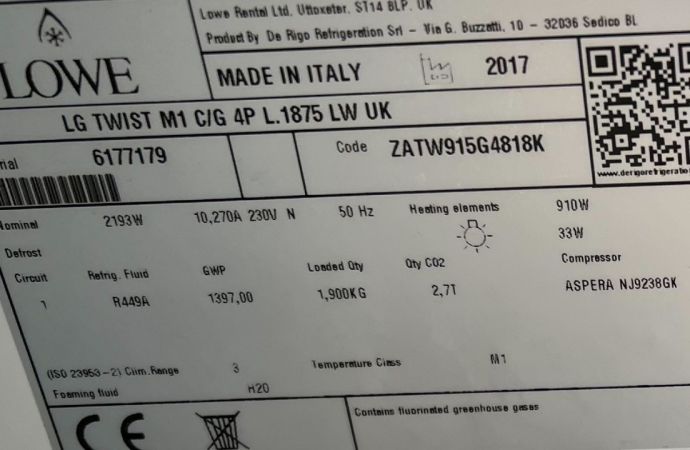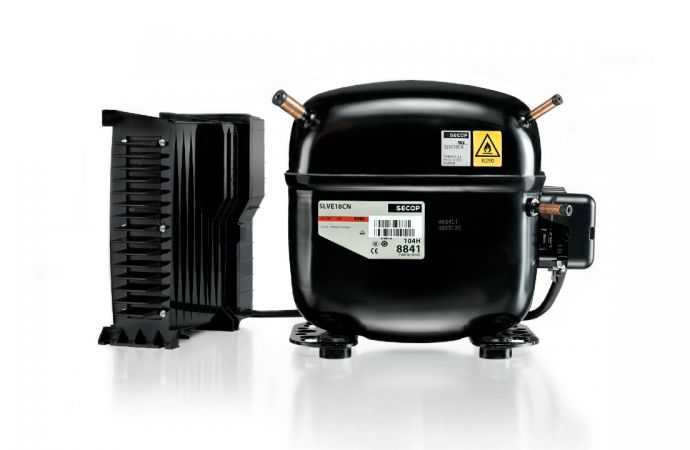The Austrian Association of Refrigeration has launched a training facility covering natural refrigerant technologies.

Aerial view of the city of Vienna, the capital of Austria. Photo by CHUNYIP WONG.
The Austrian Association of Refrigeration (ÖGKT), a training and educational organization, hosted members of Pakistan’s Ministry of Climate Change and the United Nations Industrial Development Organization (UNIDO) at its new Refrigeration Academy in Mödling, Austria, to demonstrate natural refrigerant-based cooling systems.
The visit took place on November 8, 2021, at the same time as the COP26 climate meeting in Glasgow, U.K., which also supported developing countries’ uptake of future-proof HVAC&R technologies, as well as energy-efficient equipment.
The visitors viewed a video-streamed presentation by pharmaceutical producer Takeda Austria that explored the company’s natural-refrigerant-based refrigeration and cooling systems; these include CO2 (R744) systems, propane (R290) units in ventilated enclosures and ammonia/NH3 (R717)-based systems.
Founded in 2019, the Austrian Association of Refrigeration provides members with development, educational and training opportunities. The group also helps shape national refrigeration training and certification programs. Other topics of interest to the group include environmental protection, energy efficiency and the safety of refrigeration systems.
In 2021, under the Austrian Association of Refrigeration’s umbrella, the Refrigeration Academy for Training and Education was established by two Austrian refrigeration experts: Harald Erös, Chairman of the Board, and Andreas Klaudus, Deputy Chairman of the Board of the Austrian Society of Refrigeration Technology Association.
“All training courses are in high demand,” said Erös, “and this is mainly why we decided to establish the Refrigeration Academy.”
On its website, currently available in German but soon to be translated into English, the Academy lists a wide range of online and in-person courses, comprising courses on natural refrigerants, laws and regulations.
The Academy plans to scale up its program. “We are looking for other partners in Austria where we can cooperate with them to offer the Academy’s training in other states,” said Klaudus. Hands-on modules are expected at the Mödling training facility, complementing ideas covered in the courses.
In addition to courses with fixed schedules, the Academy offers other programs targeting a broader range of stakeholders. These are designed for companies committed to upskilling their staff and for individuals who want to deepen their understanding of natural refrigerants, heat pumps or other technologies. Technicians, local policy makers and energy consultants are among the Academy’s frequent students.
NatRef courses
The Academy holds courses on flammable refrigerants two to four times a year, in cooperation with the Austrian Institute of Technology.
“Cooperation among experts is key to providing the best training available, and rather than fighting each other for the market, joining forces is beneficial to the final user,” said Klaudus.
Hands-on propane modules are planned at the Academy. Notably, the Academy’s facility has a propane-based AC split unit developed by Midea with the support of UNIDO. “We believe propane is the future in the lower cooling capacity,” Erös said. He recently published a manual on flammable refrigerants – currently available in German, but there are plans for an English translation in the near future.
With regard to ammonia, the refrigeration systems at the Takeda pharmaceutical facility can be shown to students, noted Erös. Technical courses in development for CO2 are expected to be launched with the arrival of some CO2 systems at the Academy beginning in 2022.
“Natural refrigerants are the only refrigerants that are now present on the market, and I know I can still use them in 20 years,” said Erös.
Prices for courses range from €500 to €5,500 (US$566 to US$6,223), with incentives available from the Austrian government.
Want to find out more, or have something to say about this story? Join the ATMO Connect network to meet and engage with like-minded stakeholders in the clean cooling and natural refrigerant arena.
Related stories



